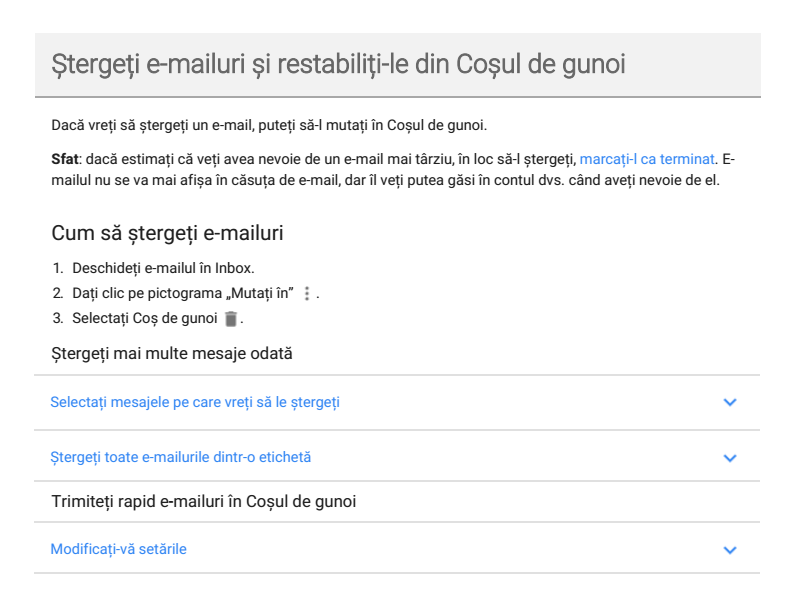A new source of jokes
« previous post | next post »
Greg Corrado, "Computer, respond to this email", Google Research Blog 11/3/2015:
I get a lot of email, and I often peek at it on the go with my phone. But replying to email on mobile is a real pain, even for short replies. What if there were a system that could automatically determine if an email was answerable with a short reply, and compose a few suitable responses that I could edit or send with just a tap? […]
Some months ago, Bálint Miklós from the Gmail team asked me if such a thing might be possible. I said it sounded too much like passing the Turing Test to get our hopes up… but having collaborated before on machine learning improvements to spam detection and email categorization, we thought we’d give it a try. […]
We’re actually pretty amazed at how well this works. We’ll be rolling this feature out on Inbox for Android and iOS later this week, and we hope you’ll try it for yourself! Tap on a Smart Reply suggestion to start editing it. If it’s perfect as is, just tap send. Two-tap email on the go — just like Bálint envisioned.
A great idea, in my opinion. I'm looking forward to using Smart Reply heavily, to help me keep up with the swelling tide of incoming email. (My Gmail primary inbox is now at 32,160 and rising…)
So I've been disappointed that Inbox on my Nexus 5 still doesn't seem to offer this feature yet.
And when I ask Inbox "Help" about "Smart Reply", this is what I get:
Seriously.
Actually the helpful reply goes on for another page or so of helpful Romanian instructions about how to delete emails. This may be the advice that I need, but my command of Romanian is minimal.
So I'm confident that Smart Reply is going to be at least as rich a source of jokes as machine translation and autocorrect. If you send me a message, and I respond that my hovercraft is full of eels, or something similar, don't look for deeper meanings, or assume that I've lost my mind. It's just my new long short-term memory email helper. Really it is.

Brian Bragg said,
November 5, 2015 @ 8:30 am
My sister does 95% of her e-mail on her iPhone using Siri, which is well trained to her pronunciation and most commonly used words My sister seldom has to use the keyboard for corrections.
[(myl) Corrado motivates the Smart Reply service in terms of mobile-device input difficulty, but I agree that speech input is a better solution, even though it's not appropriate in many public settings. For my part, however, I'm more interested in automating composition than in facilitating entry.]
Q. Pheevr said,
November 5, 2015 @ 12:50 pm
Another excellent post, Mark. As usual, I appreciate your humour and your linguistic insights.
—Acest răspuns a fost generată automat de SmartComment.
Rubrick said,
November 5, 2015 @ 7:31 pm
And the Threadie goes to… Q. Pheevr!
Doctor Science said,
November 5, 2015 @ 9:26 pm
Mark:
I tried to send you the following in an email, but penn.edu seems to be disagreeing with gmail.
Subject: Possibly of Language Log interest: Day care and language change
I happened to be reading (parts of) Vestiges of the Natural History of Creation (Chambers, 1844) and I came across his discussion of language change and evolution. Chambers wrote [pp 111-12 in the Gutenberg version http://www.gutenberg.org/ebooks/7116%5D:
I haven't been able to find an obvious source for the info about Manchester day care, in a superficial search. It's also unclear to me which languages Moffat is talking about in the quoted excerpt: whether they're Bantu or Khoisan.
Language Log readers may be interested in this quote, and also in considering what other day-care-type situations might encourage rapid language change. Orphanages? Child labor gangs? Refugee camps? … the Internet?
Rodger C said,
November 6, 2015 @ 9:04 am
I can't find it easily, but I've read somewhere of such a language once spoken by breaker boys in the anthracite region of Pennsylvania. Its remaining speakers are elderly and are divided among those who want to preserve its memory and those who despise it as "broken English" and a product of a bad time.
fisheyed said,
November 6, 2015 @ 1:42 pm
compose a few suitable responses that I could edit or send with just a tap?
When I had a Motorola flip phone, the autocomplete fulfilled the same purpose. If I started typing a reply that began with something it recognized as a frequent reply, it would give me the option of selecting the rest of the sentence without typing it. It seems to me that that would be the best, customized route.
The popularity of texting indicates to me that most people find speech input annoying and inconvenient.